If Wal-Mart buys Vudu, will the adult content go away?

Wal-Mart is in the process of acquiring streaming video service Vudu, The New York Times reports today. An unnamed source said the two companies have begun telling Hollywood studios about the deal. No details have yet been disclosed to the public.
Vudu has had its own streaming HD video products available for a little more than two and a half years, and has gradually moved away from a hardware-centric service to something more akin to Netflix, where its platform is the core of the business.
PleaseRobMe wants to turn its Foursquare jab into a real security operation
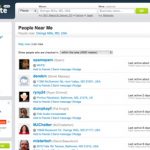
This week, Dutch group Forthehack launched PleaseRobMe, a site meant to expose the danger of location-based social networks such as Foursquare, BrightKite, Gowalla, and Google Buzz. Basically, PleaseRobMe says that every time someone posts his location in a location-based social network, that person is publicly announcing that he is not home, which could be taken to mean, no one is home.
To illustrate the point, PleaseRobMe rephrases public Foursquare posts to say, "@Username left home and checked in X minutes ago..." and then presents that person's current map location in a Twitter alert.
Public schools to open doors for after-hours Internet access

One of the "national priorities" in the Federal Communications Commission's National Broadband Plan is to use high-speed connectivity to "provide more educational opportunities and improve outcomes" for those in rural areas and inner cities.
The FCC said today that 97% percent of public elementary and secondary schools do have Internet access, but speeds are insufficient, and services are being wasted.
Nintendo smashes DS mod chip in Australia

An Australian federal court has ordered game hardware distributor RSJ IT Solutions, parent company of GadgetGear, to immediately stop selling the R4 DS modification chip that allows pirated games to be played on the popular handheld console.
The R4 chip is a microSD reader that fits into the Nintendo DS' Slot-1 port and bypasses all security functions, so the user can play music and movies, read text files, create homebrew software, and, of course, play copied games. It usually retails for around $45.
Amazon launches Kindle for BlackBerry beta
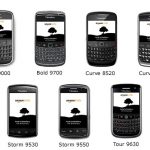
It has been just about one year since Amazon launched its Kindle app for the iPhone and iPod Touch; and today, thanks to popular demand, it has come to BlackBerry.
Like the iPhone app, Kindle for BlackBerry is free, and doesn't require a dedicated Kindle e-reader to use. Within the app, users can browse the Kindle Store and download e-books directly, and if you have already purchased Kindle e-books, you have access to your entire library, synced to the last place you left off in each book.
AT&T finally gets its first Android device, will have first Dell smartphone
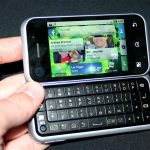
AT&T announced today that it will start selling Android devices, and the first one will be the unique Motorola Backflip, beginning on March 7.
While T-Mobile began selling Android devices as soon as the first became available in late 2008, the other major carriers have been slower to catch on. Sprint announced its first, the HTC Hero, in September 2009; and Verizon's first, the Motorola Droid, came just one month later.
Texas Instruments 'Blaze' OMAP 4 tool is a mobile developer's dream toy
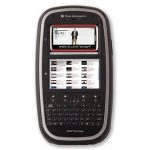
To spur development on the OMAP 4 family of ARM Cortex A9-based systems on a chip, Texas Instruments this week unveiled its Blaze development platform which incorporates nearly everything an OMAP developer/tester could possibly need to into a single tablet-sized device.
Blaze is equipped with two 3.7" capacitive WVGA touchscreens, three multi-megapixel cameras, a pico projector, HDMI out, accelerometer, compass, sensors for light, temperature, barometric pressure, and proximity, Wi-Fi, GPS, Bluetooth, FM transciever, and broad support for digital microphones and stereo speakers.
Redbox rentals won't change for consumers, but will be more profitable anyway

Well, it's final: New releases from Warner Home Video will not be cheaply rentable until four weeks after the DVD is released in stores.
In January, Netflix acquiesced to the studio's demands and imposed a 28-day rental blackout for new release Warner films; and yesterday, the results of the Warner/Redbox lawsuit were released, showing that Redbox will be doing the same.
RIM debuts free BlackBerry Enterprise Server for small businesses

Today, Canadian enterprise smartphone leader Research in Motion announced it has released BlackBerry Enterprise Server Express, a new server software solution for small BlackBerry deployments that incur no additional software or user license fees.
Starting in March, small to medium-sized businesses (SMBs) will be able to download BlackBerry Enterprise Server Express for free. With it, small deployments of BlackBerry smartphones will be able to wirelessly sync e-mail, calendar, contacts, notes and tasks; remotely manage e-mail folders and search through the mail server; book meetings and appointments; check availability and forward calendar attachments; set out-of-office replies; edit Microsoft Word, Excel and PowerPoint files using Documents To Go; and access files stored on the company network or business systems behind the company firewall.
Game changer: Verizon Wireless okays unlimited Skype over 3G

At a joint press conference at Mobile World Congress in Barcelona today, Verizon Wireless and Skype announced that Verizon's smartphone customers will be allowed to place and receive unlimited Skype-to-Skype voice calls. The voice-over-IP chat client is one of the world's most popular ways of connecting, especially for the purposes of international voice and video conferencing.
When the service opens in March, nine phones will support unlimited Skype-to-Skype voice calls, instant messaging, and international calls at Skype Out rates. These will include: BlackBerry Storm, Storm2, Curve 8330, 8530, 8830 World Edition and Tour 9630, Motorola Droid and Devour, and the HTC Droid Eris.
T-Mobile rushes ahead with HSPA+, announces first USB modem

Even though T-Mobile's HSPA+ deployment consists of only one city right now (Philadelphia), the mobile operator today unveiled its first piece of consumer equipment that will be able to handle the 21 Mbps HSPA+ network, and indeed the first HSPA+ modem available in the US, the WebConnect Rocket.
The Rocket is sort of a sequel to the WebConnect Jet 3G modem which launched last year. The main difference here is that T-Mobile was actually the last United States wireless carrier to offer a 3G USB modem, and it could be the first to offer a next-generation (some consider HSPA+ to be 3.5G or 3.75G) USB modem commercially.
LG introduces beta of 'Air Sync' for featurephones

Today, South Korean consumer electronics maker LG debuted a full-touch featurephone called the Mini, which would have otherwise been unremarkable had it not been tied into a still-in-beta service called LG Air Sync which also was announced today.
LG Air Sync is a three-way sync service for feature phones (currently only works on the Mini) that syncs contacts, calendar data, memos, and photos and Web browser information with the user's PC and his related Air Sync Web account.
HTC introduces multitouch Sense UI
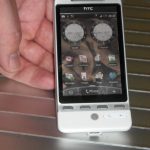
To welcome the launch of the new multitouch Android 2.1 devices named Legend and Desire, HTC announced an upgrade to its trademark Sense user interface today.
The upgrade includes a new view called Leap which is essentially a zoomed-out version of the phone's home screens. With a pinch-to-zoom gesture, the view backs out and shows seven thumbnails, one for each home screen. This feature actually leaked out in a custom ROM for the HTC Hero in mid-January, so this should already be familiar to HTC Android fans.
Vodafone debuts the cheapest mobile phone ever
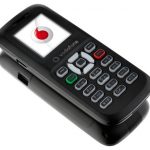
While Mobile World Congress is mostly about the most powerful handsets, the most dazzling mobile operating systems, and the next generations of wireless technology, it's fundamentally about communications.
And today, international mobile carrier Vodafone introduced what is a big advancement in the connection of developing nations, the first new mobile phone with a price tag of less than $15, the Vodafone 150.
Wireless operators want their own open app store
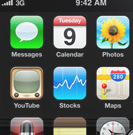
Today, a group of the most prominent wireless operators in the world announced its intent to form an "open app store," that is capable of vending applications to all mobile phone users.
Calling itself the "Wholesale Applications Community," the group is made up of 24 of the biggest mobile network operators including China Mobile, Deutsche Telekom, Vodafone, NTT DoCoMo, Telefonica, SK Telecom, Sprint, AT&T, Verizon Wireless, and hardware manufacturers LG, Samsung, and Sony Ericsson.
Tim's Bio
Tim Conneally was born into dumpster tech. His father was an ARPANET research pioneer and equipped his kids with discarded tech gear, second-hand musical instruments, and government issue foreign language instruction tapes. After years of building Frankenstein computers from rubbish and playing raucous music in clubs across the country (and briefly on MTV) Tim grew into an adult with deep, twisted roots and an eye on the future. He most passionately covers mobile technology, user interfaces and applications, the science and policy of the wireless world, and watching different technologies shrink and converge.
© 1998-2025 BetaNews, Inc. All Rights Reserved. About Us - Privacy Policy - Cookie Policy - Sitemap.
